Post-war in Paris
One of the books that's been sitting on my To Be Read shelf (yes, let's be honest I do actually mean shelves) for far too long is Antony Beevor and Artemis Cooper's Paris after the liberation : 1944 - 1949. I loved Antony Beevor's wartime histories Stalingrad and Berlin : the downfall. Beevor is a great history writer, managing to pack in detail with impeccable research, but he also writes in an almost novelistically readable form.
Paris after the liberation is written in conjunction with his wife, Artemis Cooper, and you really couldn't have asked for a better co-writer on this project. The daughter of the writer, John Julius Norwich, her grandfather was likeable aristocrat, Duff Cooper, who was the first post-war British Ambassador to Paris, and a staunch supporter of Winston Churchill in the run-up to the war. Her grandmother was society beauty Diana Cooper. The Coopers were a devoted if complicated couple, not least because of his string of affairs. The Coopers knew anyone who was anyone, and Beevor and Cooper drew heavily on Duff Cooper's letters and diaries of the period when writing Paris after the liberation.
A good third of the book is actually set pre-liberation with accounts of the rise of De Gaulle (who once knocked my father over at St. Athan RAF base during the war!), the divisions that arose between Vichy and occupied France, and the growing suspicion of Communists both within the Resistance and then the French government as hot war turned to Cold.
At times this is not an altogether easy read. France immediately post-war seems more cultured than civilised, with some brutal acts of revenge, and some outrageous behaviour (there was quite a rush to claim a part in the resistance from those whose wartime activities were nothing to boast about). The book also makes it clear that long after the war was finished there was uneasiness within France that those who had been truly responsible often went unpunished, while recrimination was heaped on useful scapegoats. Beevor and Cooper's account of France's post-war equivalent of the Nuremberg trials makes for uneasy reading.
There is much to enjoy in this book though. The sheer joy of the resurgence of French culture after a long winter comes bubbling through. Whether it's the shockingness (one wonders now what was so shocking!) of Dior's New Look, the emergence of a new breed of chanteuses with Juliette Greco appearing on the scene, new drama, and the re-opening of Shakespeare & Company.
George Orwell bumps into Ernest Hemingway on a boulevard, Camus argues with Sartre, Nancy Mitford confides in Evelyn Waugh about a turbulent love affair, and the actors of the Comedie Francaise liberate the theatre mainly using stage props. Despite the coldness of the Cold War and dark times looming ahead, Beevor and Cooper's book pulses with the sheer joy of life. This is a surprisingly enchanting read; often cold and dark but also a celebration of all that is good in life.
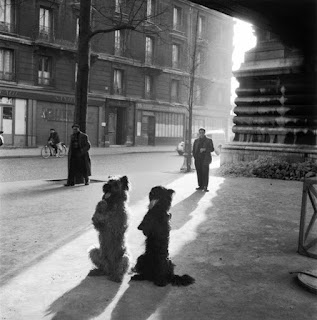 |
| Photographed by Robert Doisneau in the mid-'40s |
A good third of the book is actually set pre-liberation with accounts of the rise of De Gaulle (who once knocked my father over at St. Athan RAF base during the war!), the divisions that arose between Vichy and occupied France, and the growing suspicion of Communists both within the Resistance and then the French government as hot war turned to Cold.
At times this is not an altogether easy read. France immediately post-war seems more cultured than civilised, with some brutal acts of revenge, and some outrageous behaviour (there was quite a rush to claim a part in the resistance from those whose wartime activities were nothing to boast about). The book also makes it clear that long after the war was finished there was uneasiness within France that those who had been truly responsible often went unpunished, while recrimination was heaped on useful scapegoats. Beevor and Cooper's account of France's post-war equivalent of the Nuremberg trials makes for uneasy reading.
There is much to enjoy in this book though. The sheer joy of the resurgence of French culture after a long winter comes bubbling through. Whether it's the shockingness (one wonders now what was so shocking!) of Dior's New Look, the emergence of a new breed of chanteuses with Juliette Greco appearing on the scene, new drama, and the re-opening of Shakespeare & Company.
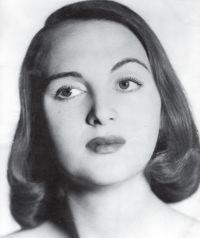
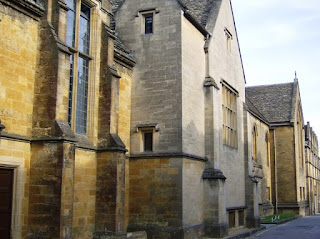
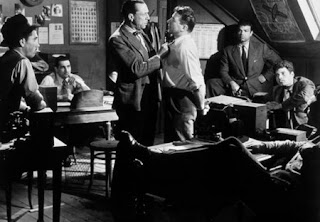
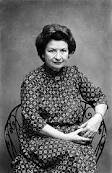
.jpeg)



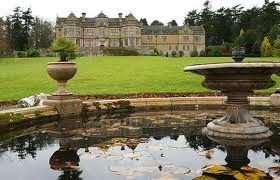
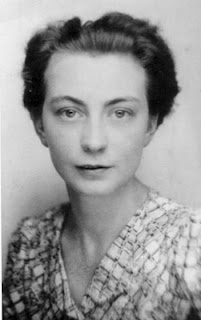
Comments